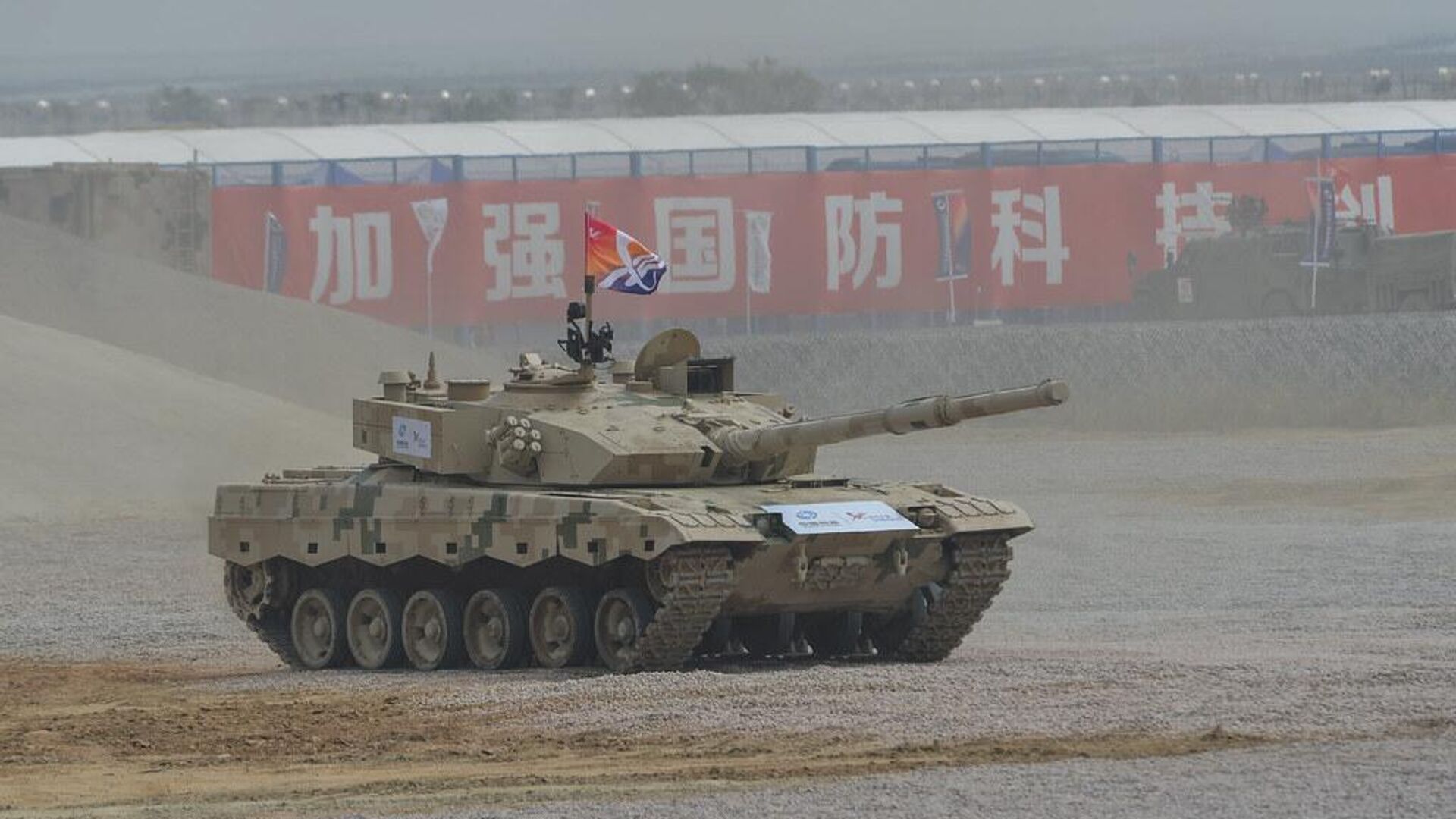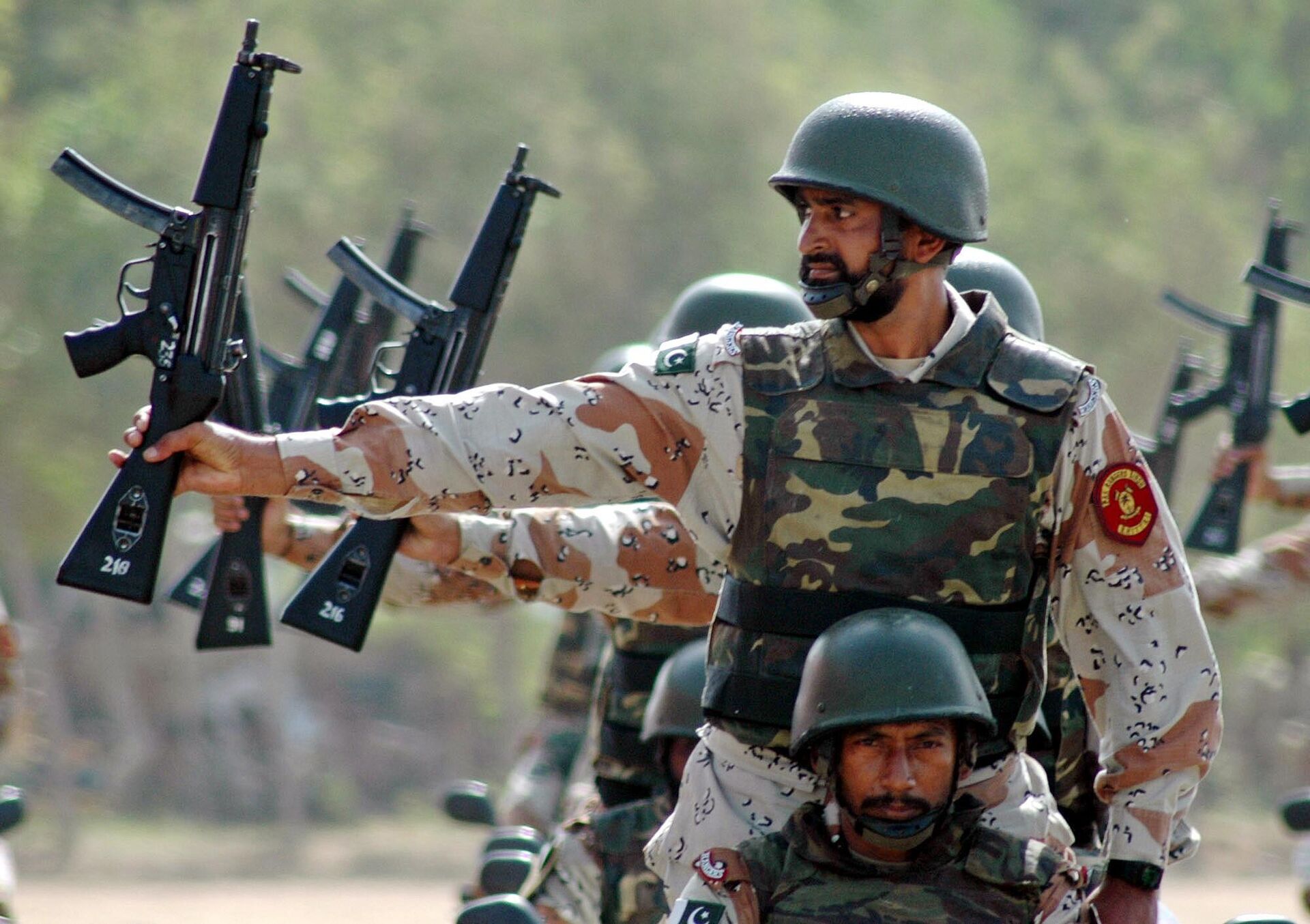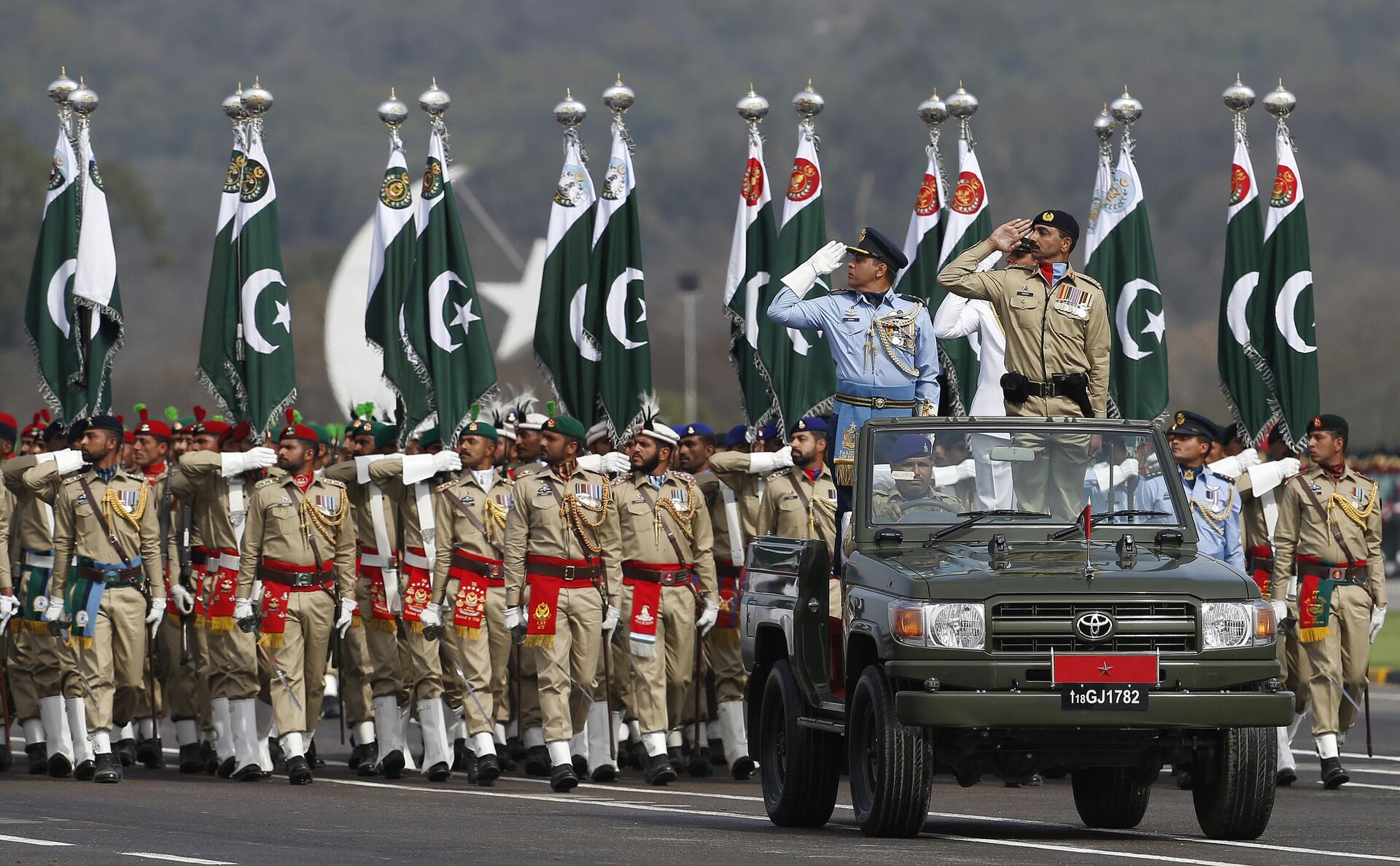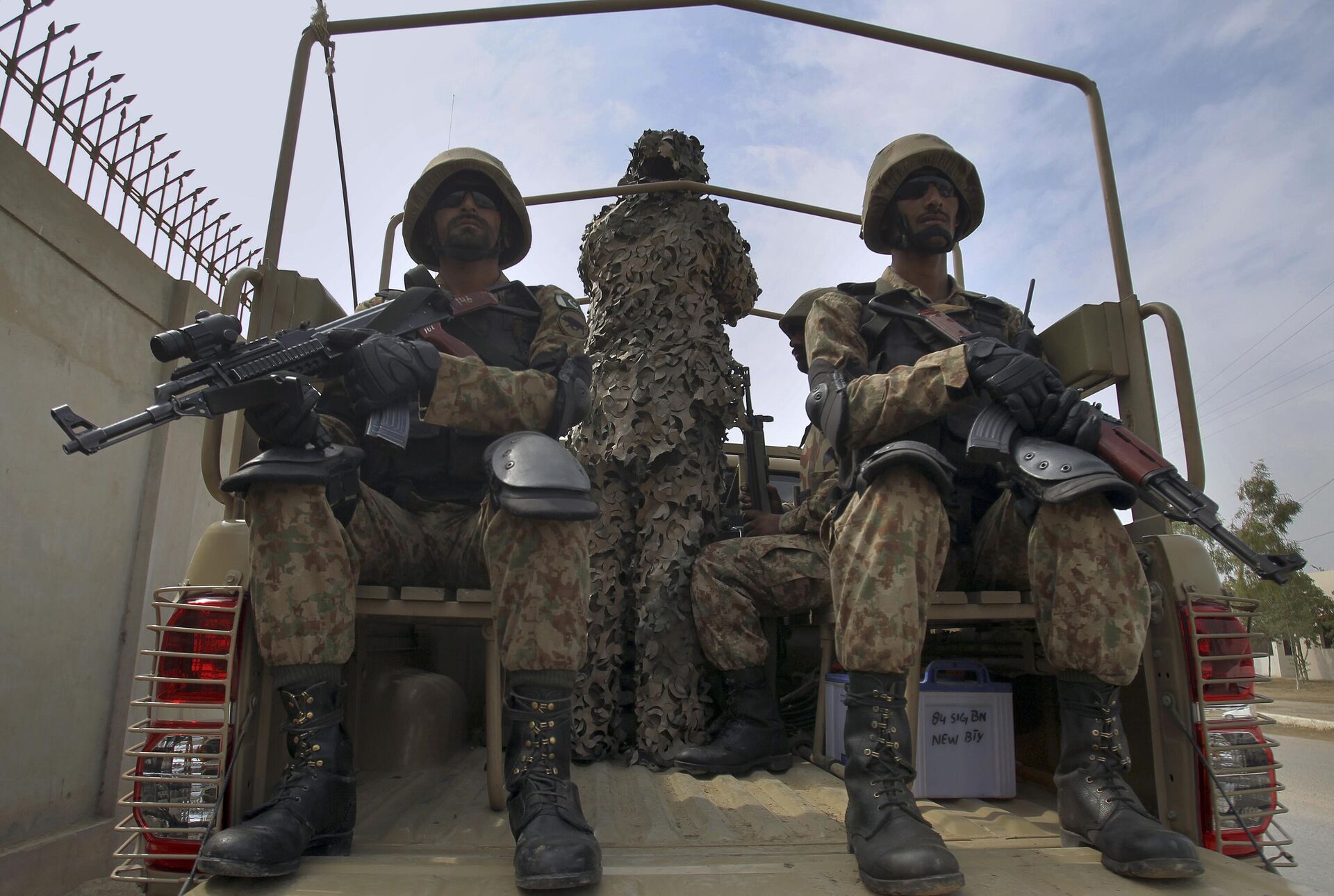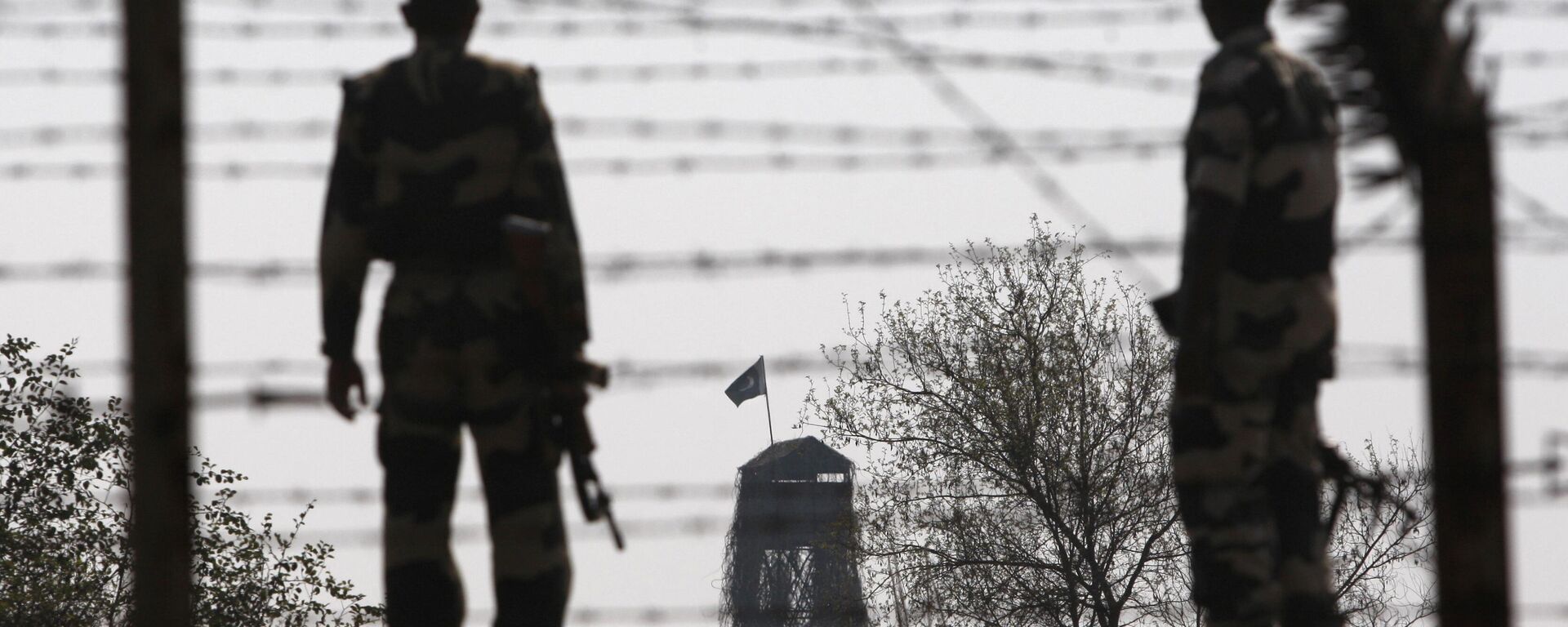https://sputniknews.in/20230924/pakistan-building-cutting-edge-vt-4-tanks-under-chinese-license--4402469.html
Pakistan Building Cutting-Edge VT-4 Tanks Under Chinese License
Pakistan Building Cutting-Edge VT-4 Tanks Under Chinese License
Sputnik India
A remarkable transformation is taking place in the heart of Pakistan's industrial landscape. Heavy Industries Taxila (HIT) is making waves in the global... 24.09.2023, Sputnik India
2023-09-24T16:14+0530
2023-09-24T16:14+0530
2023-09-24T16:14+0530
pakistan
south asia
military cooperation
military equipment
defense sector
defense pact
russian defense giant almaz-antey
pakistan army
china
https://cdn1.img.sputniknews.in/img/07e7/09/18/4416418_0:33:1024:609_1920x0_80_0_0_1dd667d7ed8a40c6e88f4994ce93105d.jpg
Heavy Industries Taxila, located in Taxila, Punjab, has a history dating back to 1971. Initially established to overhaul and maintain military vehicles, HIT has evolved into a premier defence manufacturing facility. Its collaboration with China for the production of VT-4 tanks represents a significant milestone in Pakistan's defence industry.Under a licence agreement with China North Industries Corporation (NORINCO), HIT is authorised to produce the VT-4 main battle tank. The VT-4, also known as the MBT-3000, is a modern, third-generation armoured fighting vehicle that features state-of-the-art technology and formidable firepower.Pakistan first considered acquiring VT-4s in 2014, but the first batch of tanks will not be delivered to the country until April 2020. Pakistan is now the third country after Thailand and Nigeria to receive the Chinese VT-4 tanks.In total, it now has around 100 VT-4 tanks in its military arsenal, but before acquiring the Chinese tanks, the country's military had also tested Ukrainian T-84 "Oplot M" tanks on its territory and opted for the VT-4 instead.A Technological InnovationThe VT-4 is a formidable addition to Pakistan's defence arsenal. It combines the latest in armoured vehicle technology, offering enhanced mobility, superior firepower and robust protection.Some key features of the VT-4 include:Boosting Pakistan's Defense CapabilitiesThe production of VT-4 tanks at HIT represents a significant leap forward for Pakistan's defence industry. It not only strengthens the country's armoured warfare capabilities, but also opens up new export opportunities.Pakistan joins a select group of nations capable of producing such advanced armoured vehicles. This collaboration has fostered knowledge transfer and skills development within HIT, as Pakistani engineers and technicians work alongside their Chinese counterparts.It has previously been reported that Pakistani engineers are involved in the development of Turkey's 5th generation KAAN fighter. It has also been reported that the country's specialists have also been involved in the joint development of the JF-17 fighter with China.Such collaborations therefore increase Pakistan's self-reliance in defence production and create highly skilled jobs, contributing to the country's economic growth.Global ImplicationsThe production of the VT-4 in Pakistan has global implications. It underscores the growing influence of Chinese defence technology and the expanding presence of Chinese defence companies on the global stage.Some 300 VT-4 tanks are due to be delivered to the Pakistani army by 2024, with an option for 160 more under the 2017 contract. As Pakistan's defence capabilities improve, its position as a strategic ally of China will be further cemented.
https://sputniknews.in/20230815/china-proposes-to-jointly-fight-terrorism-with-pakistan-3607333.html
pakistan
south asia
china
Sputnik India
feedback.hindi@sputniknews.com
+74956456601
MIA „Rossiya Segodnya“
2023
Aneela Rashid
https://cdn1.img.sputniknews.in/img/07e6/0c/0d/74548_0:0:485:484_100x100_80_0_0_821526e967ae85d041e2d30ee34fa1de.jpg
Aneela Rashid
https://cdn1.img.sputniknews.in/img/07e6/0c/0d/74548_0:0:485:484_100x100_80_0_0_821526e967ae85d041e2d30ee34fa1de.jpg
News
en_IN
Sputnik India
feedback.hindi@sputniknews.com
+74956456601
MIA „Rossiya Segodnya“
Sputnik India
feedback.hindi@sputniknews.com
+74956456601
MIA „Rossiya Segodnya“
Aneela Rashid
https://cdn1.img.sputniknews.in/img/07e6/0c/0d/74548_0:0:485:484_100x100_80_0_0_821526e967ae85d041e2d30ee34fa1de.jpg
vt-4 tanks, pakistan-china relations, chinese license, chinese vt-4 tanks, pakistan vt-4 tanks, key features of the vt-4, pakistan's defense capabilities, pakistani army, chinese defence technology, pakistan china defence cooperation, strategic ally of china, production of vt-4 tanks, production of vt-4 tanks in pakistan
vt-4 tanks, pakistan-china relations, chinese license, chinese vt-4 tanks, pakistan vt-4 tanks, key features of the vt-4, pakistan's defense capabilities, pakistani army, chinese defence technology, pakistan china defence cooperation, strategic ally of china, production of vt-4 tanks, production of vt-4 tanks in pakistan
Pakistan Building Cutting-Edge VT-4 Tanks Under Chinese License
A remarkable transformation is taking place in the heart of Pakistan's industrial landscape. Heavy Industries Taxila (HIT) is making waves in the global defence arena by producing the VT-4 main battle tank. This partnership with China strengthens Pakistan's defence capabilities and cements its position as a key player in the global arms trade.
Heavy Industries Taxila, located in Taxila, Punjab, has a history dating back to 1971. Initially established to overhaul and maintain military vehicles, HIT has evolved into a premier
defence manufacturing facility. Its collaboration with China for the production of VT-4 tanks represents a significant milestone in Pakistan's defence industry.
Under a licence agreement with China North Industries Corporation (NORINCO), HIT is authorised to produce the VT-4 main battle tank. The VT-4, also known as the MBT-3000, is a modern, third-generation armoured fighting vehicle that features state-of-the-art technology and formidable firepower.
Pakistan first considered acquiring VT-4s in 2014, but the first batch of tanks will not be delivered to the country until April 2020. Pakistan is now the third country after Thailand and Nigeria to receive the Chinese VT-4 tanks.
In total, it now has around 100 VT-4 tanks in its
military arsenal, but before acquiring the Chinese tanks, the country's military had also tested Ukrainian T-84 "Oplot M" tanks on its territory and opted for the VT-4 instead.
A Technological Innovation
The VT-4 is a formidable addition to Pakistan's defence arsenal. It combines the latest in armoured vehicle technology, offering enhanced mobility, superior firepower and robust protection.
Some key features of the VT-4 include:
Advanced Firepower: The VT-4 is armed with a 125mm smoothbore gun capable of firing a variety of projectiles, including armor-piercing fin-stabilised sabot (APFSDS) and high-explosive anti-tank (HEAT) rounds. This firepower allows it to engage a wide range of targets with precision.
State-of-the-Art Armor: The tank's composite and modular armour provides excellent protection against a wide range of threats, including anti-tank guided missiles and artillery rounds. Reactive armour and composite armour tiles further enhance survivability.
High Mobility: Equipped with a powerful engine and advanced suspension system, the VT-4 can traverse difficult terrain with ease. Its speed and agility make it a formidable force on the battlefield.
Modern Electronics: The tank is equipped with an advanced fire control system, thermal imaging and night vision technology, ensuring accurate target acquisition and engagement, even in adverse conditions.
Digital Communication: Designed for a crew of 3 (commander, driver, gunner), the tank is integrated with digital communication systems for tank to tank and commander to commander communication.
Boosting Pakistan's Defense Capabilities
The production of VT-4 tanks at HIT represents a significant leap forward for Pakistan's defence industry. It not only strengthens the country's armoured warfare capabilities, but also opens up new export opportunities.
Pakistan joins a select group of nations capable of producing such advanced armoured vehicles. This collaboration has fostered knowledge transfer and
skills development within HIT, as Pakistani engineers and technicians work alongside their Chinese counterparts.
It has previously been reported that Pakistani engineers are involved in the development of Turkey's 5th generation KAAN fighter. It has also been reported that the country's specialists have also been involved in the joint development of the JF-17 fighter with China.
Such collaborations therefore increase Pakistan's self-reliance in defence production and create highly skilled jobs, contributing to the country's
economic growth.
The production of the VT-4 in Pakistan has global implications. It underscores the growing influence of Chinese defence technology and the expanding presence of Chinese defence companies on the global stage.
Some 300 VT-4 tanks are due to be delivered to the Pakistani army by 2024, with an option for 160 more under the 2017 contract. As Pakistan's
defence capabilities improve, its position as a strategic ally of China will be further cemented.
